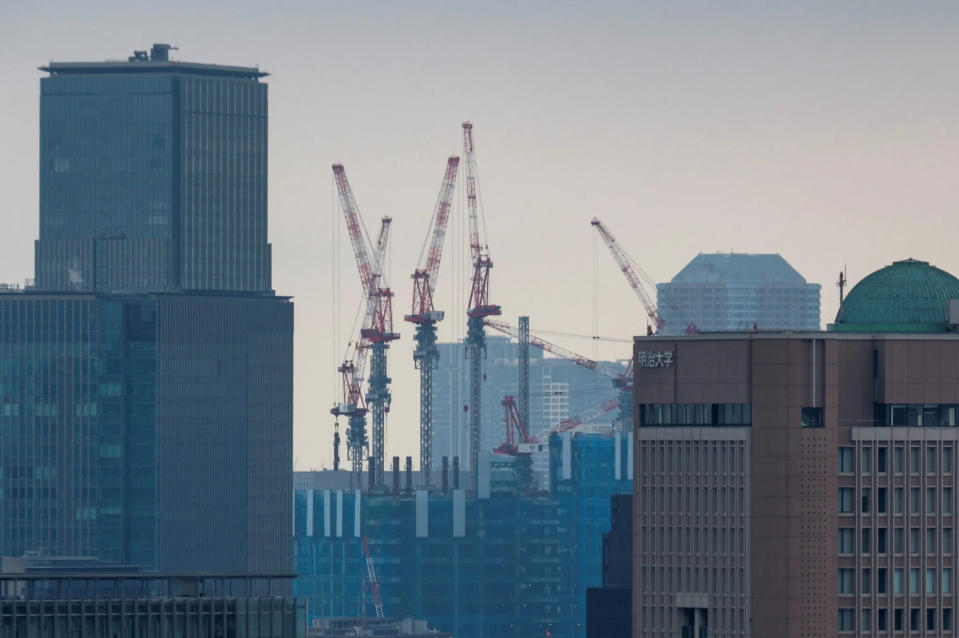Japan may have escaped deflation only to risk stagflation instead, as the country’s economy slumps for 3 straight quarters

At the beginning of the year, Japan looked like it might have moved past its decades-long slump. Booming stock markets, rising wages, and the first interest rate hike in 17 years pushed investors and economists to argue that the Asian economy had finally turned a corner.
But tepid growth is testing that optimism. On Thursday, Japan’s cabinet office unveiled its preliminary estimates for GDP growth, announcing that the country’s economy shrank by a 2% annualized rate in the first three months of 2024. It marks the country's third straight quarter of flat-to-negative growth.
Japanese officials blamed temporary shocks for the worse-than-expected slump, such as supply disruptions in the auto sector. Late last year, Daihatsu, a Toyota-owned car manufacturer, suspended production after it revealed irregularities in testing data stretching back decades. The company only fully resumed production last week.
But economists think the slump could be caused by something deeper than a supply shock.
"The biggest concern is private consumption,” Stefan Angrick, an economist at Moody's Analytics, told the Wall Street Journal. Household consumption dropped by 0.7% compared to the previous quarter.
Business spending is weak too, falling 0.8% quarter-on-quarter, suggesting “the private sector recovery is still on weak footing,” HSBC economists Jun Takazawa and Frederic Neumann wrote in a Thursday research note.
Stagflation?
Prices in Japan rose by 3.2% last year, the highest rate since 1982. Inflation has cooled since then, but are still rising faster than incomes. Real wages have dropped for two years straight, meaning "households understandably continued to limit their spending" last quarter, HSBC's Takazawa and Neumann wrote.
The combination of weak growth and rising prices is raising the specter of stagflation. “There’s barely any growth and inflation is running high,” Taro Saito, head of economic research at NLI Research Institute, told Bloomberg.
Slow growth complicates whether and when the Bank of Japan hikes interest rates again to get inflation under control. “This is not at all the kind of situation where they can raise interest rates again right away,” Nobuyasu Atago, chief economist at Rakuten Securities Economic Research Institute, told Bloomberg.
The Bank of Japan increased interest rates in mid-March to 0-0.1%, ending the last remaining negative interest rate regime among major economies. Central bankers credited successful wage negotiations, where Japanese unions won their biggest pay increases in over 30 years, for their decision to hike rates.
If Japan decides to hold off raising interest rates, that could create another problem: a weak yen.
The Japanese yen has fallen to record low as the country's interest rates remain much lower than those offered by the U.S. A weak currency makes exports cheaper and imports more expensive; that's good for export-focused sectors like tourism and car manufacturing, but hurts households and industries that rely on imported inputs.
Japan's companies are starting to worry about the consequences of a persistently weak yen. The country's largest restaurant companies are now building more outlets overseas in a bid to escape the weak yen, according to Nikkei Asia.
The yen might even be weighing down Japan’s stock markets, which surged past a bubble-era record earlier this year. Bloomberg notes that, in dollar terms, the Nikkei 225 is underperforming the S&P 500 and Hong Kong’s Hang Seng Index.
This story was originally featured on Fortune.com

 Yahoo Finance
Yahoo Finance 